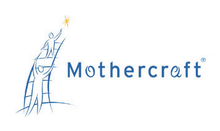
The Canadian Mothercraft Society (Mothercraft) is a non-profit, charitable NGO that serves children ages 0 to 6, their families, their teachers, and their community.

The Canadian Mothercraft Society (Mothercraft) is a non-profit, charitable NGO that serves children ages 0 to 6, their families, their teachers, and their community.
Mothercraft's history dates back to 1907 when Dr. Truby King introduced "Mothercraft as an Educational Process" as an intervention strategy in New Zealand for the high rate of infant mortality. Dr. King's "Twelve Essentials" (King, 1930) for the raising of healthy infants included:air and sunshine, water, food, clothing, bathing, muscular exercise and sensory stimulation, warmth, regularity, cleanliness, mothering, management, and rest and sleep. Dr. King's "Twelve Essentials" were thought to be revolutionary at the time.
In 1918, Dr. King campaigned on the need for the pre-parenting for parenting and the value of breast-feeding. Dr. King was invited to establish a system of Mothercraft. The underlying message of his program and of the Mothercraft manual was: "Build healthy babies rather than patch sick ones". The Mothercraft system became known as the Mothercraft Movement as it spread to all corners of the British empire, including Australia, England, India, Jamaica, New Zealand, Scotland, and South Africa.
In 1925, His Majesty King George V knighted Dr. King. Over the years, the Royal Family provided support, interest, and encouragement in the activities and accomplishments of Mothercraft.
In 1931, Barbara Mackenzie, a registered nurse and midwife trained in New Zealand came to Canada and married Irving Robertson, then Chairman of the Board of the Hospital for Sick Children in Toronto, Canada. Together, Mr. and Mrs. Robertson established the Canadian Mothercraft Society. Mrs. Robertson championed the cause of midwifery, founded the Mothercraft Well-Baby Nursing Training program, and operated the Mothercraft maternity hospital, and maintained a community registry of Well-Baby Nurses. Well-Baby Nurses aided with breastfeeding, getting infants on schedules, and provided at home child care support. The registry of Well-Baby Nurses was maintained until 1990.
The work of the Canadian Mothercraft Society also attracted the attention of Britain's Royal Family. In 1931, Her Majesty Queen Elizabeth the Queen Mother, as Her Royal Highness the Duchess of York, became the Honorary Patroness of the Canadian Mothercraft Society.
In these early days, the Canadian Mothercraft Society supported infants awaiting adoption with the Catholic Children's Aid Society and provided hospice for infants who were very ill. It was also a time prior to the establishment of Canadian public health systems. To support local efforts at community-based public health, Mothercraft opened advice rooms so that families could bring young children for medical and nutritional advice. Mothercraft also pioneered prenatal classes that focused on infant well-being and mental health.
In the 1960s, Mothercraft's medical focus broadened to include early learning and care and, in 1965, the Canadian Mothercraft Society opened one of the first infant child care centres in Toronto.
In 1967, Mothercraft joined with the Ontario Institute for Studies in Education and conducted research with Dr. William Fowler to determine the effects of quality child care on disadvantaged children. The findings from Dr. Fowler's research provided the foundation for Mothercraft's curriculum in Early Childhood Education. In 1979, Mothercraft again joined research forces with the Ontario Institute for Studies in Education studying early intervention strategies for infant at risk and their families with Dr. Dorothy Shipe. The findings from this research provided a foundation for Mothercraft's early intervention programs.[ citation needed ]
As of 2011, The Canadian Mothercraft Society departments include:

A wet nurse is a woman who breastfeeds and cares for another's child. Wet nurses are employed if the mother dies, or if she is unable or chooses not to nurse the child herself. Wet-nursed children may be known as "milk-siblings", and in some cultures, the families are linked by a special relationship of milk kinship. Wet-nursing existed in cultures around the world until the invention of reliable formula milk in the 20th century. The practice has made a small comeback in the 21st century.
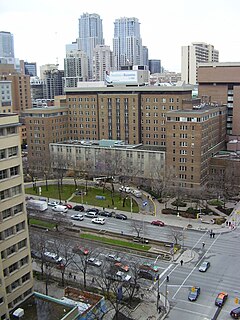
The Hospital for Sick Children (HSC), corporately branded as SickKids, is a major pediatric teaching hospital located on University Avenue in Toronto, Ontario, Canada. Affiliated with the Faculty of Medicine of the University of Toronto, the hospital was ranked the top pediatric hospital in the world by Newsweek in 2021.

Fetal alcohol spectrum disorders (FASDs) are a group of conditions that can occur in a person whose mother drank alcohol during pregnancy. Symptoms can include an abnormal appearance, short height, low body weight, small head size, poor coordination, behavioural problems, learning difficulties, and problems with hearing and sight. Those affected are more likely to have trouble with school, the legal system, alcohol, other drugs, and other areas of high risk. The several forms of the condition are: Fetal Alcohol Syndrome (FAS), Partial Fetal Alcohol Syndrome (pFAS), Alcohol-Related Birth Defects (ARBD),Static Encephalopathy, Alcohol-Related Neurodevelopmental Disorder (ARND) and Neurobehavioral Disorder associated with Prenatal Alcohol Exposure (ND-PAE). Some authorities accept only FAS as a diagnosis, seeing the evidence as inconclusive with respect to other types.

A neonatal intensive care unit (NICU), also known as an intensive care nursery (ICN), is an intensive care unit (ICU) specializing in the care of ill or premature newborn infants. Neonatal refers to the first 28 days of life. Neonatal care, as known as specialized nurseries or intensive care, has been around since the 1960s.
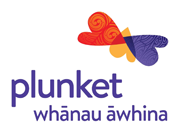
The Royal New Zealand Plunket Trust provides a range of free services aimed at improving the development, health and wellbeing of children under the age of five within New Zealand, where it is commonly known simply as Plunket. Its mission is "to ensure that New Zealand children are among the healthiest in the world". Much of Plunket's work is organised by volunteer bases throughout New Zealand.
Early childhood intervention (ECI) is a support and educational system for very young children who have been victims of, or who are at high risk for child abuse and/or neglect as well as children who have developmental delays or disabilities. Some states and regions have chosen to focus these services on children with developmental disabilities or delays, but Early Childhood Intervention is not limited to children with these disabilities.

Sir Frederic Truby King, generally known as Truby King, was a New Zealand health reformer and Director of Child Welfare. He is best known as the founder of the Plunket Society.
Margaret Frances Jane Lowenfeld was a British pioneer of child psychology and play therapy, a medical researcher in paediatric medicine, and an author of several publications and academic papers on the study of child development and play. Lowenfeld developed a number of educational techniques which bear her name and although not mainstream, have achieved international recognition.

Luther Emmett Holt was an American pediatrician and author, noted for writing The Care and Feeding of Children: A Catechism for the Use of Mothers and Children's Nurses in 1894.

Dame Kate Isabel Campbell, DBE, FRCOG was a noted Australian physician and paediatrician. Campbell's discovery, that blindness in premature babies was caused by high concentrations of oxygen, resulted in the alteration of the treatment of premature babies world-wide and for this she received global recognition.
Hanorah Philomena FitzGibbon MBE was a New Zealand civilian and military nurse, hospital matron and nursing administrator.
Muriel Helen Deem was a New Zealand medical doctor, medical officer, Plunket medical adviser and university lecturer.

Kenneth Dodge is the William McDougall Distinguished Professor of Public Policy and Professor of Psychology and Neuroscience at Duke University. He is also the founding and past director of the Duke University Center for Child and Family Policy and founder of Family Connects International.
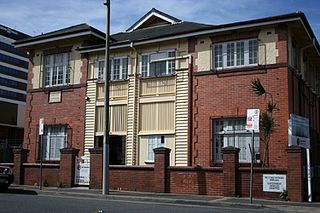
Fortitude Valley Child Health Centre is a heritage-listed clinic at 112 Alfred Street, Fortitude Valley, Queensland, Australia. It was designed by Cecil James Virgo. It is also known as Fortitude Valley Baby Clinic & Nurse Training Centre. It was added to the Queensland Heritage Register on 12 August 2011.
Kathryn Elaine Barnard was a nurse known for her discovery of the role mother-newborn interactions have in early childhood development.
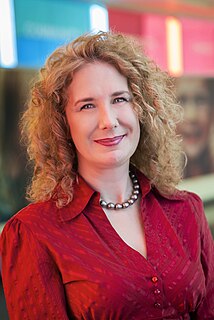
Nicole Lyn Letourneau is a Canadian professor and researcher. She is a Research Chair in Parent and Child Mental Health at the University of Calgary. Formerly she held the Alberta Children's Hospital Chair and Norlien Foundation Chair in Parent-Infant Mental Health (2011–2021) and Canada Research Chair in Healthy Child Development (2007–2011). She currently serves as the director of the RESOLVE Alberta and principal investigator for the CHILD Studies Program at Alberta Children's Hospital Research Institute. She has written over 210 peer-reviewed publications; authored the books, Parenting and Child Development: Issues and Answers, What Kind of Parent Am I:Self-Surveys That Reveal The Impact of Toxic Stress Scientific Parenting: What Science reveals about Parental Impact, and has contributed more than 20 other books on parenting and childcare.
The Karitane Hospitals were six hospitals in New Zealand run by the Plunket Society, located in Auckland, Christchurch, Dunedin, Invercargill, Wanganui and Wellington. They were established as training hospitals for Karitane nurses and cared for babies with malnutrition and other dietetic complaints, and premature babies. They also offered mother care training and assistance. The first hospital opened in 1907 and the hospitals were closed between 1978 and 1980 due to financial difficulties and changes in society and maternity services.

Margaret Hilda Harper was an Australian pediatrician, medical writer, and radio commentator. Harper was one of the two physicians who described that coeliac disease in the pancreas and cystic fibrosis were "distinct entities" in the 1930s.
The Mothercraft Training Society was an organization in the United Kingdom which trained expectant and new mothers, nurses, midwives, and health visitors in 'mothercraft', with the aim of bringing down infant mortality. Briefly known as the Babies of the Empire Society, before taking on its new name, it established its own infant welfare clinic, with a dietetic hospital, and ran a year-long training course from which students emerged as qualified nursery nurses.
Prasanna Nair is an Indian-born doctor working in the United States. She works in primary health care with a specialty in pediatric endocrinology